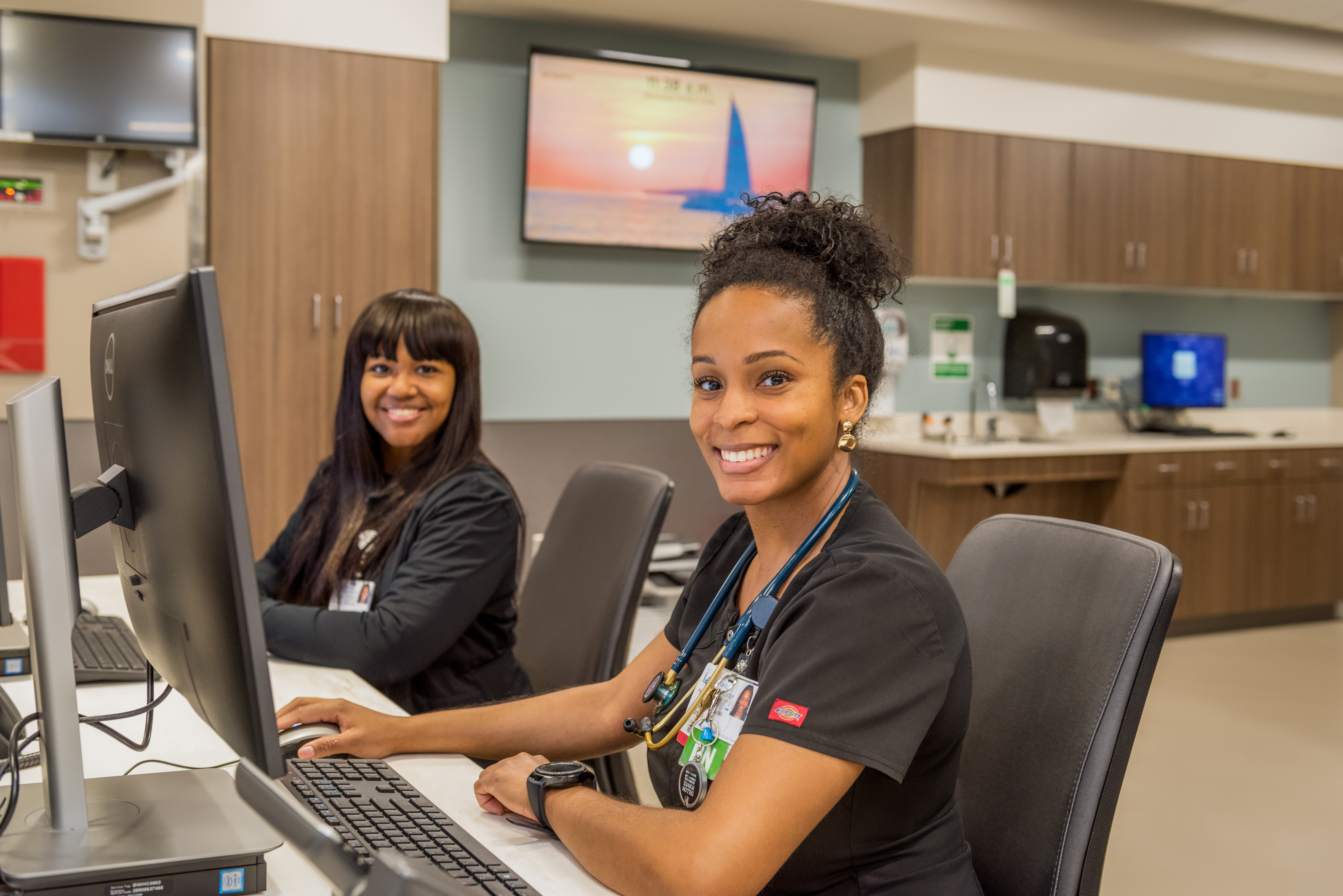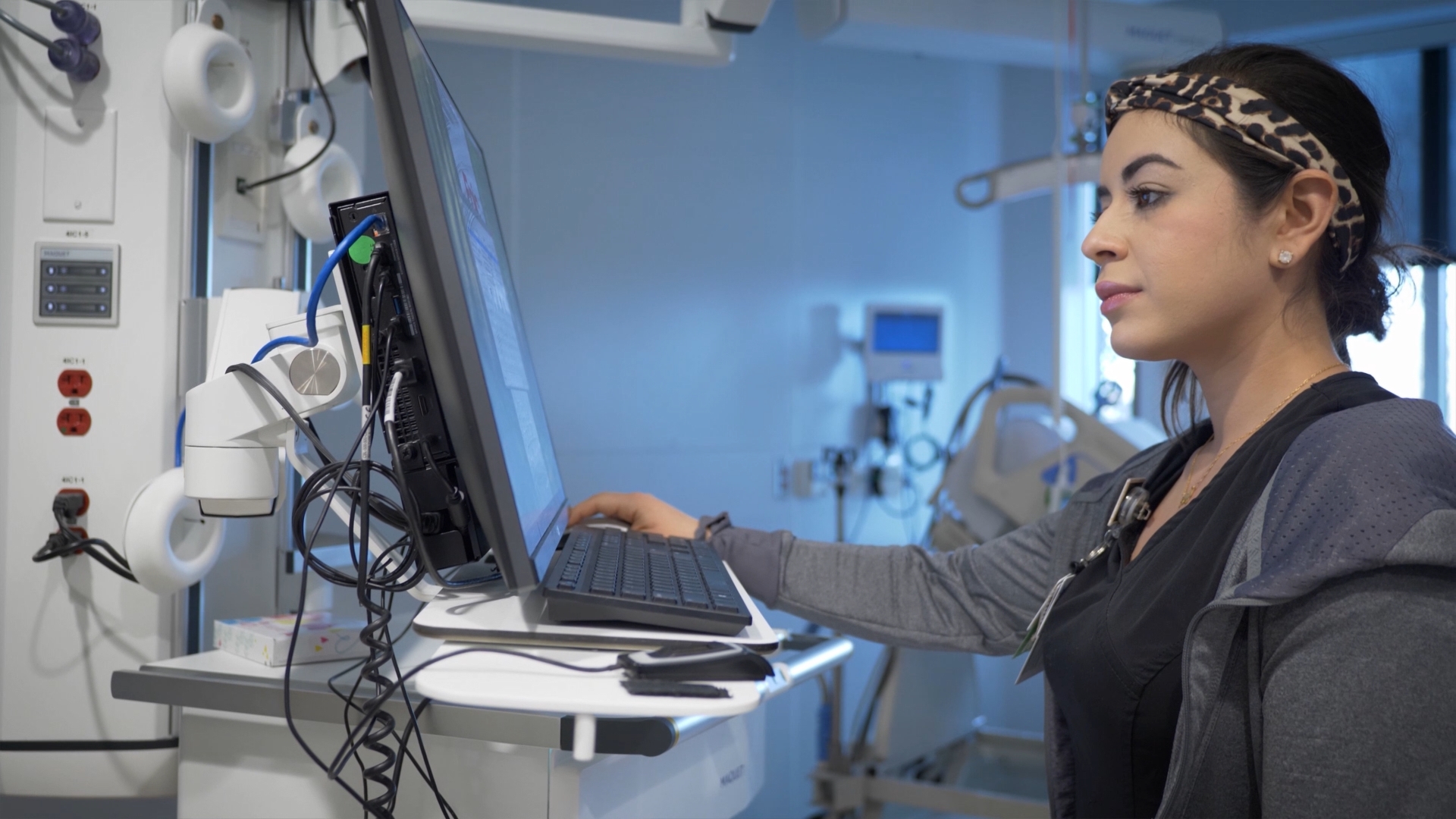What to Expect

Congratulations!
You’re on the nursing team. Now what? We’ll offer guidance and support as you embark on an exciting career as an RN at Spartanburg Regional. Transition to practice pathway experiences vary depending on your job, unit and career choices. Following are a few general guidelines.
The Basics
Once you’ve visited our career opportunities page to find your ideal job, you’re on your way toward a new career.
If you’re a new graduate or a nurse with less than 12 months of hospital experience, we’ll enroll you in a transition-to-practice pathway when you’re hired. Before you start, a nurse leader reaches out to welcome you and fill you in on details. The Nursing Clinical Education team serves as a partner throughout your first year. Our goal is to foster your professional development within a practice-based learning environment.
Beginning Your Pathway
You will start with one day of virtual orientation, called Regional Connections. From there, the next two weeks will be in-person, nursing-specific orientation classes including Fundamentals of Patient Care, Compassionate Crisis Care, Epic Training, Nursing Orientation and Basic Cardiac Arrhythmia. This orientation period includes classroom and hands-on learning opportunities to familiarize yourself with important hospital policies, procedures and documentation and creates a solid base to prepare you for your time on the unit.
After hospital and nursing orientation, you will be acquainted with your unit and meet your new colleagues. Each new nurse is assigned a highly skilled nursing preceptor to oversee 400+ hours of training in direct patient care. You will progressively take on new challenges, gain independence and grow in patient care capabilities. Throughout this time, a nursing clinical educator will meet with you on a regular basis to assess your progress and serve as a resource for any additional questions that may come up while at the bedside.
Transition to Practice Nurse Residency classes will begin within 3 months of your start date. You can expect one 4- or 8-hour class per month, depending on the area you work. We work closely with your nurse managers to accommodate your schedule for attendance to your Transition to Practice classes.

Transition to Practice Conferences
Explore these and other ways to earn money and boost your skills while you’re still in school. We’ll work around class schedules, study times and school breaks. Give your career an edge with valuable on-the-job experience that translates to finding the best job and advancing your career goals.
What’s your passion? Learn more about specialized areas of interest while gaining insights and skills to prepare you for your ideal nursing career.

Nursing Basics
Learn and reinforce fundamentals like sepsis management, medication safety, evidence-based practice and medical emergency. Hear from our Chief Medical Officer on our “Just Culture.”

Professional Development
You will learn more about provider, peer and patient communication, wellness and self-care, and quality improvement.

Legal Conference/Seminar
Learn documentation guidelines from a legal nurse consultant and participate in a mock deposition. Other presentations include "What is mandatory reporting?" and "The impacts of social media in Healthcare."

Graduation
Present your quality improvement idea to nurse leaders in the room, and learn more about what comes next as a nurse with a year of experience.
Other Stepping Stones
Along the way, nursing educators will evaluate your progress and give you feedback on your areas of strength along with opportunities where you can grow.
Transition to practice courses are mandatory, and attendance is monitored throughout the program.
As your transition to practice nears completion, you’ll participate in a quality improvement pitch with a multidisciplinary team to improve your unit's nursing workflow and patient outcomes.
At the completion of your transition to practice program, you will present your quality improvement pitch to Nursing Leadership and Administration. You will learn more about the next opportunities for professional growth, such as a Preceptor & Charge Nurse Workshop, clinical ladder portfolio and other continuing education opportunities.












